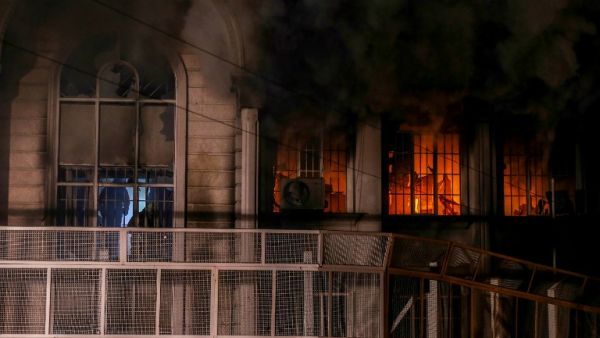The Saudi Arabian Embassy in Lebanon has taken precautionary security measures following the execution of Shia cleric Nimr al-Nimr and the torching of the Saudi Embassy late on Saturday in Tehran, the Kuwaiti daily al-Jarida said on Sunday.
The embassy's staff were notified of the necessity to stay inside the embassy to avoid any reprisals they may be exposed to by supporters of Iran in Lebanon, it added.
Angry crowds protesting at Saudi Arabia's execution of al-Nimr set fire to the kingdom's embassy in Tehran Saturday and stormed the building before being cleared out by police, reports said.
Unnamed sources said that the demonstrations could kick off in Beirut, Bekaa and in the South in protest to the execution and to condemn Saudi Arabia's act.
“The Iranian retaliation might kick off from Lebanon to target Saudi businesses or officials,” the sources stated, adding that “several officials of al-Mustaqbal movement mainly head of the parliamentary bloc Fouad al-Saniora have taken the necessary precautions.”
Hezbollah leader Sayyed Hassan Nasrallah is expected to deliver a speech Sunday afternoon to address the issue.
Saudi Arabia on Saturday executed a prominent Shia cleric behind anti-government protests along with 46 other men, drawing angry condemnation from Iran and Iraq.
The execution of Nimr al-Nimr and the others, including Shia activists and Sunnis accused of involvement in deadly al-Qaeda attacks, was announced by the Saudi interior ministry.
It prompted calls for demonstrations, with the brother of the 56-year-old cleric warning it could stir more trouble in oil-rich Eastern Province where Shia complain of marginalization.
Editor's note: This article has been edited from the source material








